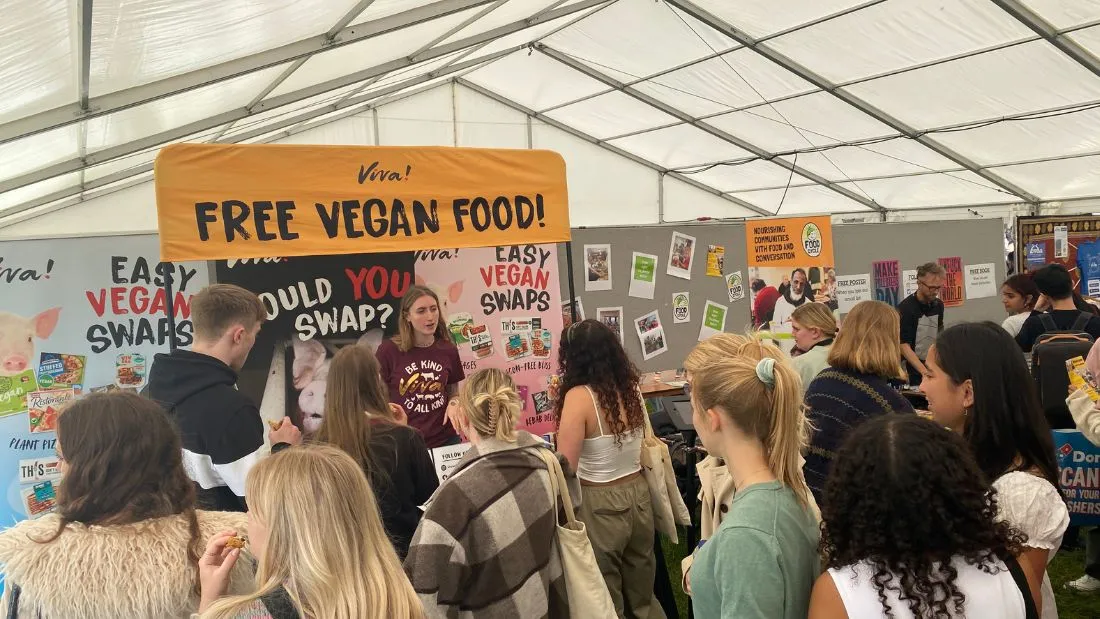And today’s misleading headline…

This time the headlines say that long term vegetarianism can lead to genetic mutations which raise the risk of heart disease and cancer, scientists have found. Well, that’s not really what they found, but it makes attention-grabbing headlines.
The news reports are saying that scientists believe that a genetic mutation occurred to make it easier for vegetarians to absorb essential fatty acids from plants. They say that researchers from Cornell University in the US compared hundreds of genomes (it was actually 234) from a primarily vegetarian population in India with those of (331) traditional meat-eating people in Kansas and found there was a significant genetic difference. What they actually found was that 68 per cent of the Indians carried a mutated gene that conferred an advantage in that it helped them convert short chain fats into long-chain ones that are required for good health. This is called ‘positive selection’. Just 18 per cent of the sample from the US had the mutated gene.
The newspapers said “when coupled with a diet high in vegetable oils – such as sunflower oil – the mutated gene quickly turns fatty acids into dangerous arachidonic acid.” The problem with arachidonic acid is that it is an omega-6 fat that can promote inflammation. Omega-3s, on the other hand, reduce inflammation.
The authors of the study say that this is a problem associated with modern Western diets not vegetarians and vegans. They say we evolved eating a diet characterised by a 4:1 or less ratio of omega-6s to omega-3s. Whereas, the modern Western diet has undergone an extraordinary increase in omega-6s resulting in a ratio above 10:1 and is likely to be even higher in an Indian diet that contains high levels of fat, estimated to be as high as 50:1. This is where the problem lies – not with vegetarianism!
Over the last few decades, consumption of sunflower, corn oil and vegetable fats in processed and baked foods has increased. As a consequence, omega-6 intake has gone up, as has the ratio of omega-6 to omega-3 fats. It is likely that this dramatic shift is a risk factor for diet-related diseases, such as cardiovascular disease, diabetes, cancer as well as inflammatory diseases. The authors say that most commercially produced seed oils, sunflower, safflower, peanut, grapeseed, cottonseed and corn, contain very high levels of omega-6s. People with the adapted genotype then may be at increased risk for inflammatory diseases but as already said, this is a problem with Western diets – not vegetarian diets.
The ratio of omega-6 to omega-3 fats in the diet may be more important than the actual amounts of each fat eaten because omega-6 competes with omega-3, essentially cancelling it out. So cutting down on omega-6 may be just as important as increasing omega-3 to get the balance right. Typical diets can produce whopping ratios of 30:1 (omega-6 to omega-3) in contrast to the WHO’s recommendation of between 10:1 and 5:1. Other sources recommend ratios as low as between 4:1 and 2:1 but it’s not an exact science.
For omega-3, a good rule of thumb is little and often. Reduce the use of sunflower, safflower and corn oils, replacing them with olive oil, flaxseed, rapeseed and soya bean oils.
The last (misleading) word in the news reports say that “this finding may help explain previous research which found vegetarian populations are nearly 40 per cent more likely to suffer colorectal cancer than meat eaters, a finding that has puzzled doctors because eating red meat is known to raise the risk.” Well this puzzles me too and I have yet to see the study in question. I have however seen countless studies that show that vegetarians have a much lower risk for bowel cancer than meat-eaters which is exactly why the World Cancer Research Fund and the World Health Organisation now advise people to avoid or reduce their consumption of red and processed meat.
This work was supported by grant from the National Center for Complementary and Integrative Health formerly known as the National Center for Complementary and Alternative Medicine and the Office of Dietary Supplements.
Links to the headlines:
Long term vegetarian diet changes human DNA raising risk of cancer and heart disease – The Telegraph
Vegetarian diet ‘raises risk of heart disease and cancer’ – The Daily Mail
To find out where you can omega-3s from in a healthy vegan diet see our guide Go Fish Free.




